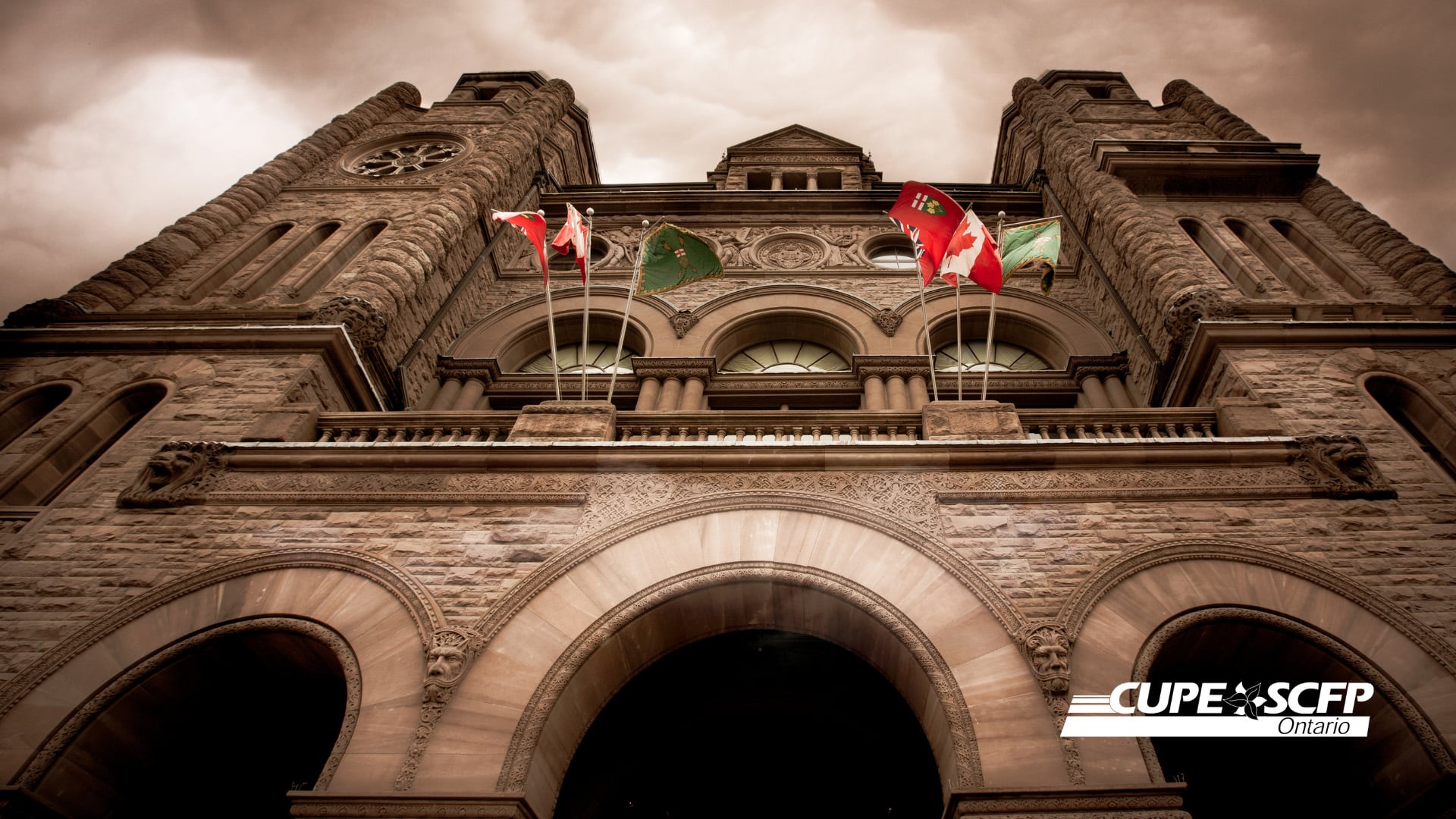Mindful of inflation, Premier Doug Ford has promised to be “fair” in upcoming public sector negotiations.
Unions say that’s impossible while Bill 124 exists, but Ford hasn’t ruled out axing the bill, which caps public-sector wage increases at one per cent per year (though the Treasury Board noted that workers can still get pay bumps for seniority, performance or increased qualifications).
“I’m a strong believer when you get inflation, we’ve gotta treat people fairly,” Ford said on Friday, the morning after the election, when he was asked directly about it. “They’re out there working hard, doing a great job, and we rely on them. So I’m very grateful for everyone, especially the nurses.”
Unions representing those workers say repealing Bill 124 is the first step to a fair deal.
“When you have a child-care worker or a developmental service worker who’s making $35, $38,000 a year, and they are unable to make a wage increase of more than one per cent, it means that their wages are going to fall significantly against inflation. They already have,” CUPE Ontario President Fred Hahn said.
Inflation has hit nearly seven per cent this year.
Registered Nurses’ Association of Ontario CEO Doris Grinspun said she’s hopeful Ford will repeal the bill, given his victory speech pledge to work with everyone, including unions. Grinspun said she invited him to the RNAO’s annual general meeting on Friday, which she cast as the perfect opportunity to announce an end to Bill 124.
Grinspun added that Ontario could see a COVID-19 surge in the fall, and said the province should work to retain as many health workers as possible to prepare.
The staffing shortage is a “crisis,” she said, “that I have never, never (seen) in my life, in any of the four countries that I have practiced in.”
It’s being felt across the world — but Bill 124 makes it even worse in Ontario, she said.
“Whether you look at physio, whether you look at the respiratory therapists, which you need for any type of serious surgery … it’s all across the professions,” she said.
Public sector workers are only subject to the one-per-cent cap when they negotiate a new agreement. Once they serve a three-year “moderation period” under this cap, their unions can negotiate cap-free.
CUPE Ontario’s 60,000 hospital workers are in bargaining right now. They have not served their moderation periods, meaning they could be “locked in” at below-inflation wages, “deepening the dire health care staffing shortage,” said Michael Hurley, the president of the Ontario Council of Hospital Unions.
Thousands more members in sectors like custodian work, food service and adjunct professors are negotiating now or soon, Hahn said.
Male-dominated construction unions have won larger settlements recently, Hurley noted. “Women workers in health care must not be left behind. We are glad the premier appears to recognize this.”
CUPE Ontario’s 55,000 education workers served notice to bargain the day after the election. Teachers’ contracts are up on Aug. 31. These groups’ next agreements won’t be subject to Bill 124.
Theoretically, once all public sector workers have “served their time,” as Hahn put it, Bill 124 would be moot. But Hahn noted that the government could simply add a regulation for new three-year terms — or write new legislation to do the same thing.
While the Tories have worked to build ties with private sector unions, their relationship with the public sector is strained, to say the least. Unions have savaged Ford for Bill 124 — especially health workers, who see it as a slap in the face for their pandemic work, and a prime reason Ontario is hemorrhaging nurses.
Ford has heaped praise on nurses and other health workers during the pandemic. His government also gave nurses $5,000 retention bonuses and personal support workers a $2–3 hourly pay bump.
Ford said on Friday that he sees public and private sector unions differently. He suggested some labour leaders are out of touch with their membership, saying teachers often told him they’re voting blue.
On the campaign trail, McNaughton told QP Briefing he’s been able to find more common ground with private sector unions. He said he was open to mending the relationship with the public sector, but that both sides have to try.
That seems unlikely to happen without a Bill 124 repeal. If there’s no movement soon, CUPE Ontario plans to reboot its campaign to push back on the legislation, Hahn said. But first, he said he’ll write to the premier and ask for a sitdown.
“And we hope for the best,” he said.

